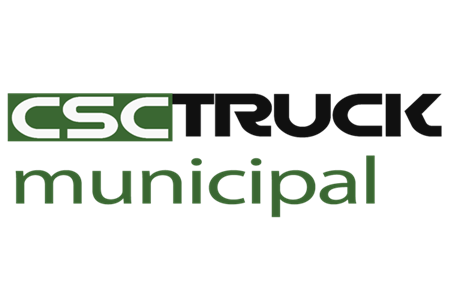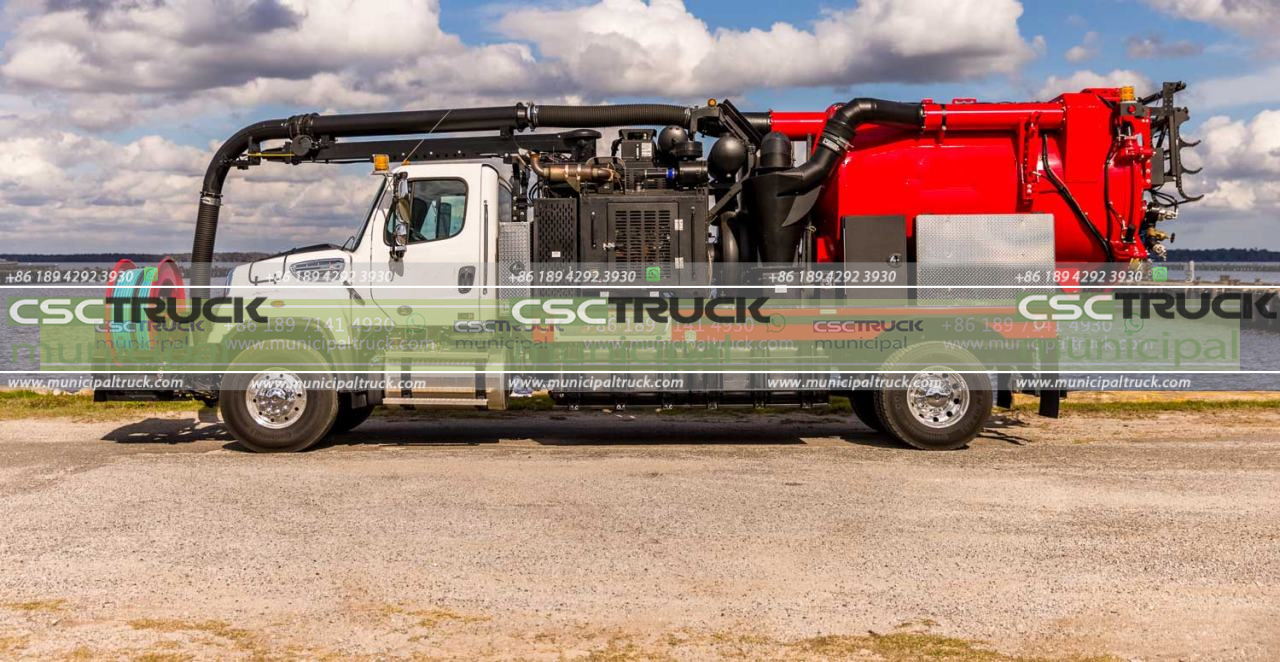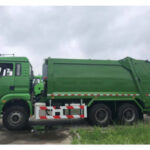Maintaining the efficiency of vacuum sewer trucks is crucial for the proper functioning of modern sanitation systems. These trucks play a pivotal role in ensuring the cleanliness and hygiene of our communities by effectively collecting and transporting sewage. To uphold their performance and extend their operational life, regular and thorough maintenance is essential. This article delves into the significance of vacuum sewer truck maintenance and highlights key practices that contribute to efficient cleaning operations.
The Role of Vacuum Sewer Trucks in Modern Sanitation
Vacuum sewer trucks, also known as vacuum tankers or vacuum loaders, are specialized vehicles designed to remove liquids, sludges, and debris from sewer lines and other wastewater systems. Unlike conventional gravity-based sewer systems, vacuum sewer systems rely on differential air pressure to move wastewater from lower to higher elevations. Vacuum trucks create negative pressure in the collection pipes, causing sewage to flow into their tanks for transportation to treatment facilities. This innovative approach reduces the risk of leaks and blockages, making vacuum sewer systems an increasingly popular choice for urban and rural areas alike.
The Importance of Maintenance
Effective maintenance is the cornerstone of the longevity and performance of vacuum sewer trucks. Neglecting maintenance can lead to reduced suction power, increased fuel consumption, higher operational costs, and even breakdowns during critical tasks. Proper maintenance not only ensures the smooth functioning of the trucks but also contributes to a cleaner environment and improved public health.
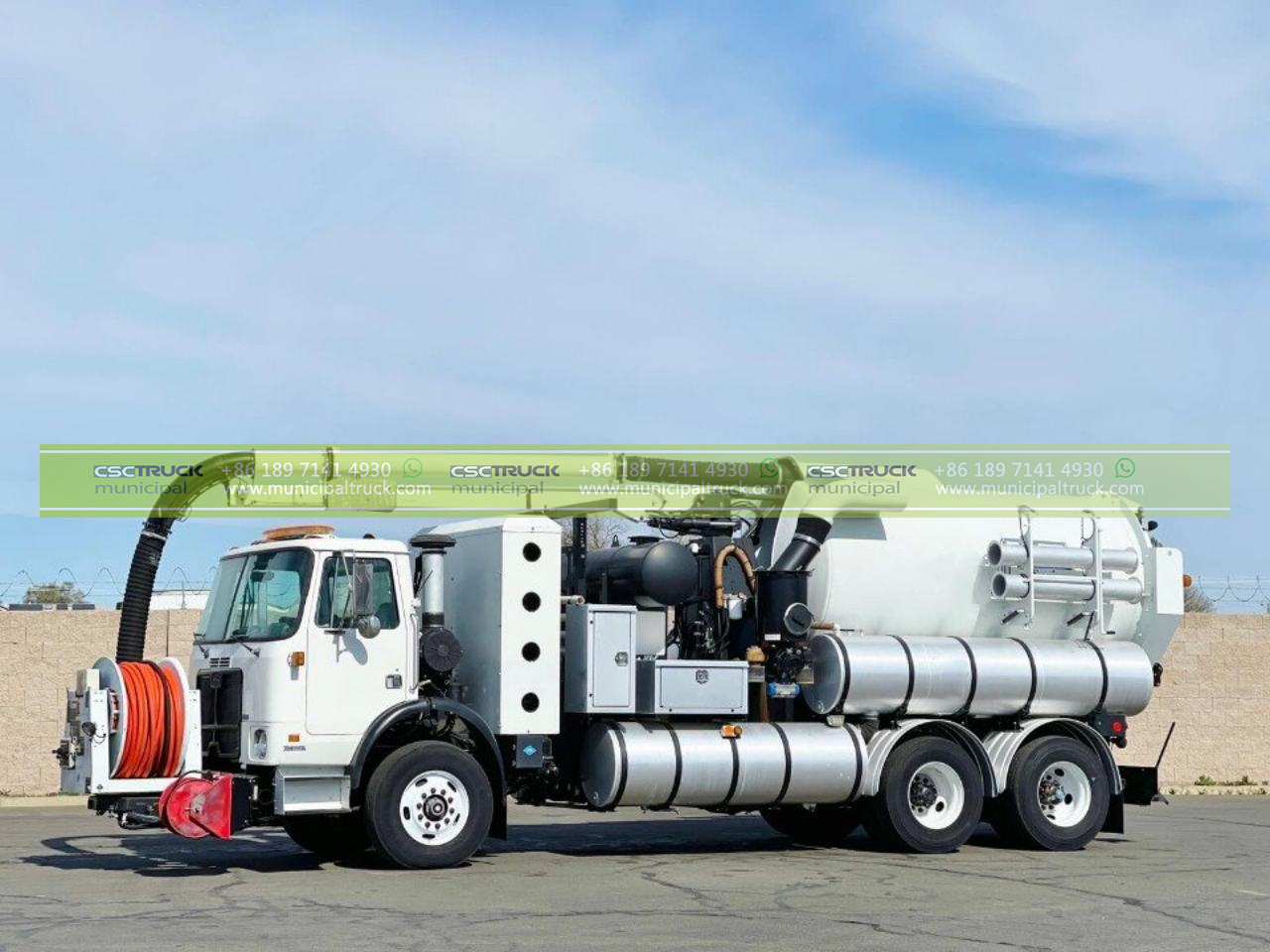
Key Maintenance Practices for Efficient Cleaning
1. Regular Inspection: Routine inspections of all truck components are essential to identify any signs of wear and tear. Inspecting hoses, valves, pumps, and filters for leaks or damage can prevent potential issues from escalating.
2. Oil and Filter Changes: The engine oil and filters should be changed at recommended intervals. Clean oil ensures optimal engine performance and reduces friction, contributing to better fuel efficiency and extended engine life.
3. Vacuum System Maintenance: The vacuum pump is the heart of a vacuum truck. Regular inspection, lubrication, and maintenance of the vacuum system components, including the pump, relief valves, and separators, are crucial for efficient operation.
4. Hose and Fitting Care: The hoses and fittings are exposed to harsh conditions during operations. Checking for cracks, leaks, or signs of deterioration in hoses and ensuring tight connections prevent loss of suction power and enhance worker safety.
5. Tank Cleaning: Proper tank cleaning prevents the buildup of sediment and residue, which can lead to foul odors and reduced tank capacity. A clean tank also contributes to maintaining a hygienic work environment for the operators.
6. Electrical System Check: The truck’s electrical system, including lights, sensors, and controls, should be regularly inspected to ensure safe and accurate operation. Malfunctions in the electrical system can compromise both safety and efficiency.
7. Tire Maintenance: Well-maintained tires improve fuel efficiency and overall truck performance. Regularly checking tire pressure, tread depth, and alignment can prevent unnecessary wear and tear on the tires.
8. Operator Training: Proper training for vacuum truck operators is a critical aspect of maintenance. Well-trained operators are more likely to use the equipment correctly and identify potential issues early on.
9. Hygiene and Safety: Vacuum truck operators should follow strict hygiene and safety protocols. Proper protective gear, regular handwashing, and the use of disinfectants can prevent the spread of harmful pathogens.
Benefits of Effective Maintenance
1. Optimized Performance: Regular maintenance ensures that vacuum trucks operate at their maximum capacity, leading to efficient and effective cleaning of sewer systems.
2. Cost Savings: Preventive maintenance helps avoid costly repairs and downtime due to unexpected breakdowns. Additionally, well-maintained trucks tend to be more fuel-efficient, reducing operational costs.
3. Extended Lifespan: Vacuum trucks are a significant investment. Proper maintenance can significantly extend their operational lifespan, maximizing the return on investment.
4. Environmental Protection: Vacuum trucks play a vital role in preventing environmental contamination by safely transporting sewage and wastewater to treatment facilities. Regular maintenance reduces the risk of leaks or spills during transit.
5. Public Health: Clean and well-maintained vacuum trucks contribute to improved public health by preventing the spread of disease and maintaining sanitary conditions in communities.
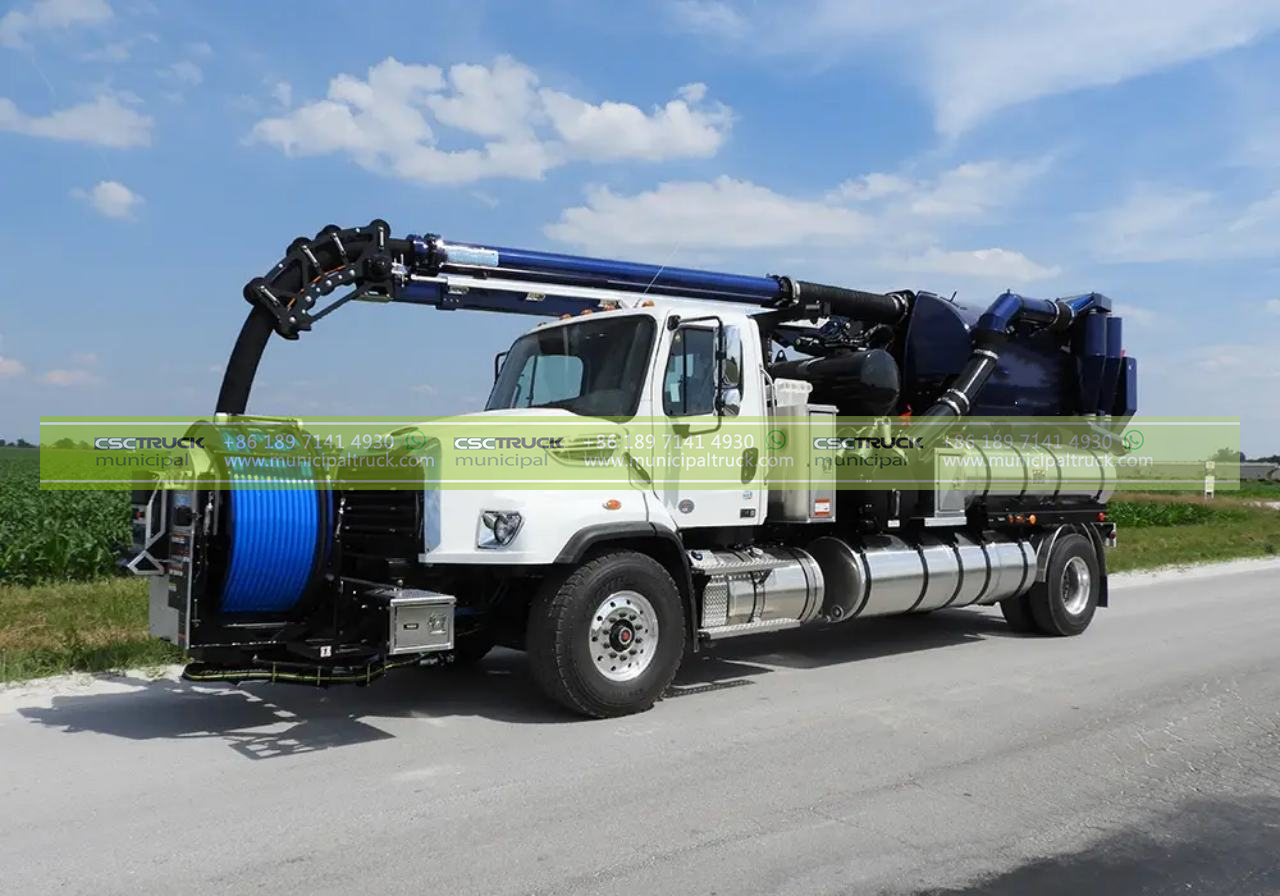
Challenges and Innovations in Vacuum Sewer Truck Maintenance
While the importance of vacuum sewer truck maintenance is undeniable, the industry also faces challenges and is constantly evolving to embrace innovative solutions. Here are some challenges and advancements that shape the landscape of vacuum sewer truck maintenance:
1. Wear and Tear from Harsh Environments:
Vacuum sewer trucks operate in diverse and often challenging environments, from urban areas to remote rural locations. Exposure to abrasive materials, corrosive substances, and extreme weather conditions can lead to accelerated wear and tear. To counter this, manufacturers are exploring durable materials, advanced coatings, and improved designs to enhance the trucks’ resilience.
2. Remote Monitoring and Telematics:
Modern vacuum trucks are increasingly equipped with telematics systems that enable remote monitoring of various parameters, including engine performance, fuel consumption, and maintenance needs. This real-time data empowers fleet managers to schedule maintenance more efficiently, reducing downtime and optimizing operational efficiency.
3. Predictive Maintenance:
Advancements in data analytics and machine learning have paved the way for predictive maintenance models. By analyzing historical data and performance trends, these models can predict when components are likely to fail, allowing maintenance to be performed proactively, thereby avoiding costly breakdowns.
4. Sustainable Practices:
The vacuum truck industry is also embracing sustainable practices. Manufacturers are exploring more fuel-efficient engines, alternative fuels, and emission-reduction technologies to minimize the environmental impact of these vehicles. Additionally, recycling and reusing materials in truck construction contribute to a more sustainable lifecycle.
5. Training and Skill Enhancement:
As vacuum truck technology becomes more sophisticated, the need for well-trained operators is paramount. Regular training programs ensure that operators are well-versed in the latest maintenance practices and safety protocols, reducing the likelihood of errors and accidents.
6. Remote Diagnostics and Repair:
In the digital age, remote diagnostics are becoming a game-changer. Manufacturers can remotely diagnose issues, provide guidance to technicians on-site, and even perform software updates without the need for physical presence. This not only speeds up repairs but also minimizes downtime.
7. Integrated Maintenance Software:
Sophisticated maintenance software solutions are streamlining the management of maintenance schedules, work orders, and spare parts inventory. These systems ensure that no aspect of maintenance is overlooked, leading to comprehensive and consistent upkeep.
8. Enhancing Safety Measures:
Occupational safety is a top priority in the maintenance of vacuum sewer trucks. Innovations in safety equipment, operator training, and ergonomics are reducing the risk of accidents and ensuring the well-being of workers.
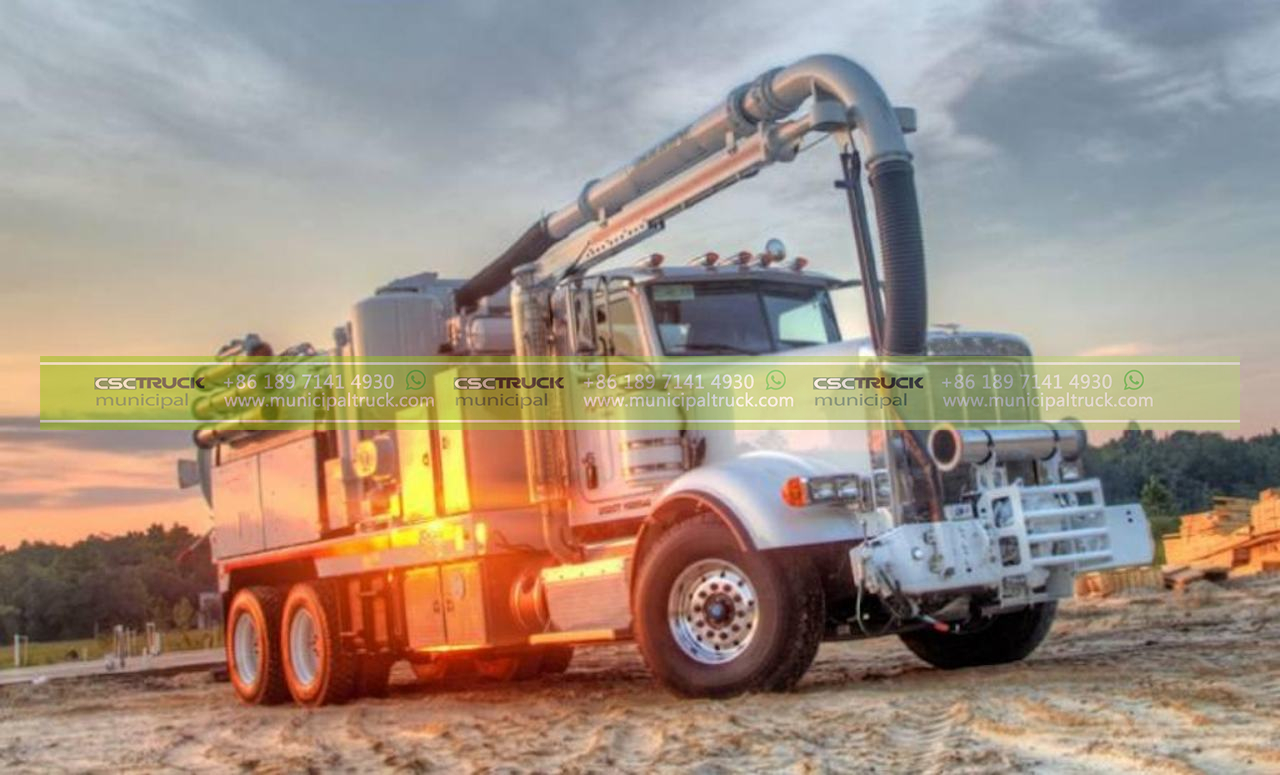
Conclusion: Toward a Cleaner Future
In the grand tapestry of sanitation, vacuum sewer trucks play a critical role in upholding the health and hygiene of our communities. Through their diligent work, they transport and manage wastewater, preventing environmental contamination and the spread of disease. However, their efficacy relies heavily on proper maintenance.
As we move forward, the vacuum truck industry is adapting to challenges and embracing innovations that optimize maintenance practices. From predictive maintenance to remote diagnostics, each advancement contributes to more efficient operations, reduced environmental impact, and safer working conditions.
It’s essential for stakeholders, including municipalities, sanitation departments, and fleet managers, to recognize the importance of investing in vacuum sewer truck maintenance. By allocating resources toward regular inspections, operator training, and adopting emerging technologies, we can ensure that these essential vehicles continue to serve our communities effectively and efficiently.
In the quest for cleaner and healthier urban environments, vacuum sewer truck care stands as a testament to our commitment. As we combine tradition with technology and expertise with innovation, we pave the way for a future where sanitation knows no boundaries. Through the upkeep of these indispensable machines, we contribute to a more sustainable and hygienic world for generations to come.
Contact us for this municipal truck or similar trucks: [email protected] Call us or What's APP us: +86 189 4292 3930
